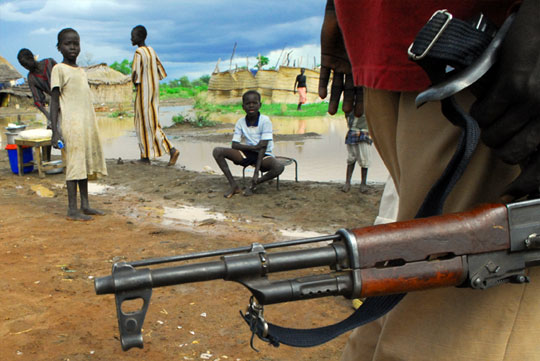September 21, 2009

As international diplomatic attention focuses on Sudan's approaching political deadlines, more incidents of violence have occurred in the South. On August 29, in the latest in a series of devastating clashes, a violent attack in Twic East County, Jonglei State resulted in the deaths of 42 people, many of them women and children, and displaced up to 24,000 people.
Although populations in the region have long suffered from cycles of violence, it is now clear that the nature of violence has changed.
Jonathan Whittall, head of the Medecins Sans Frontieres mission in South Sudan, explained that the August 29th attack represents a new development (external link):
"The violent clashes are different to the traditional 'cattle rustling' that normally occurs each year. Women and children, usually spared in this fighting, are now deliberately targeted and the number of deaths are higher than the number of wounded. In the last six violent incidents that MSF responded to in Jonglei and Upper Nile States over the last six months, official figures show that 1,057 people were killed in contrast to 259 wounded, with more than 60,000 displaced. This is new -- the intention is to attack a village and to kill. The result is a population living in total fear, with significant humanitarian and medical needs."
Update: Burning buildings and attacking chruchgoers (external link), militiamen killed over a hundred people in a raid on the village of Duk Padiet in Jonglei State on September 20. Southerners have accused Khartoum of arming rival tribes in the region, although the government denies the claim.
View All Blog Posts